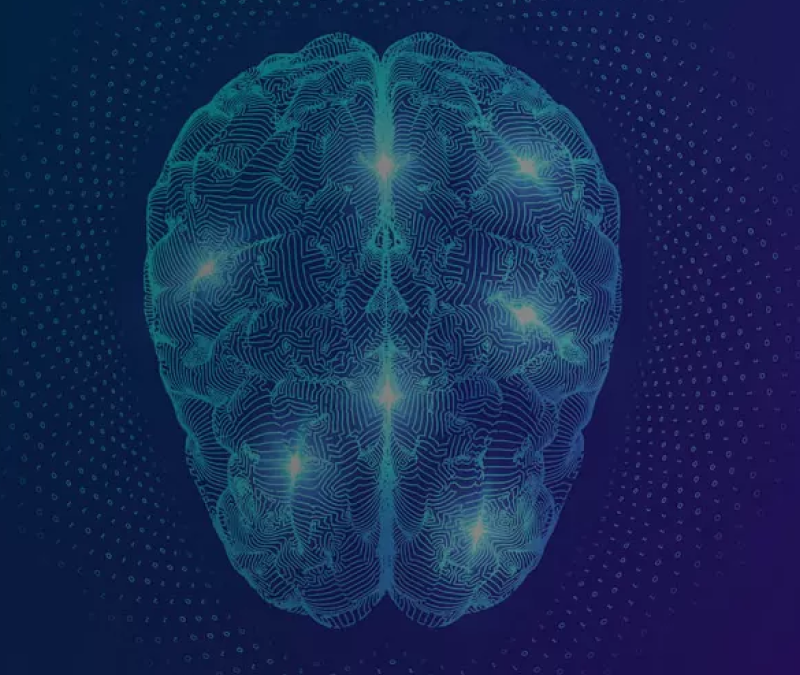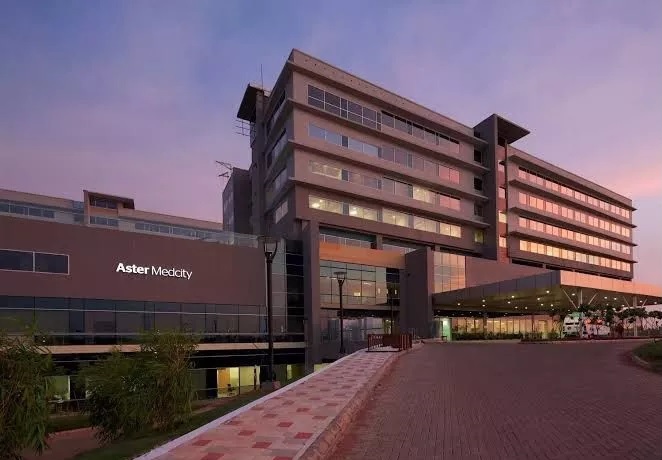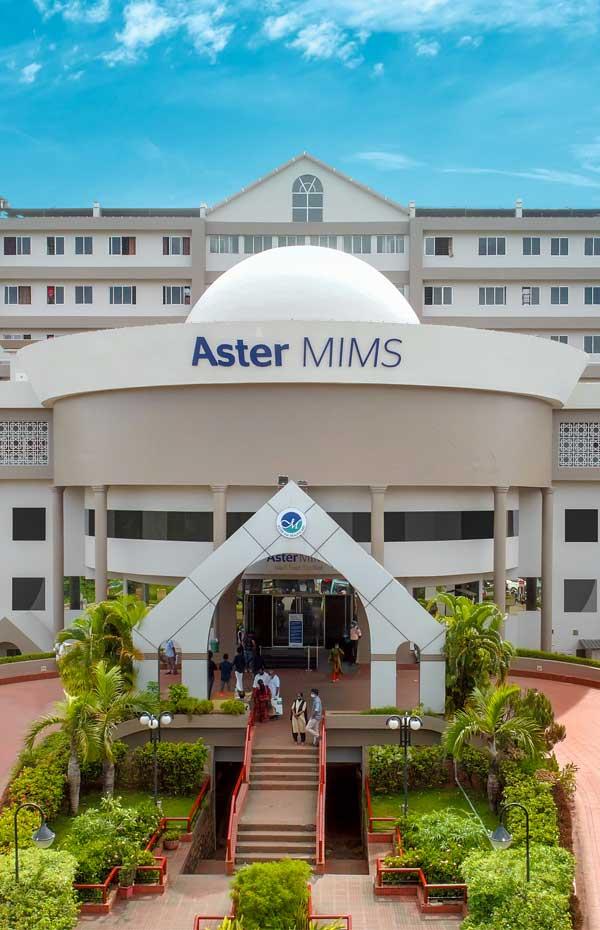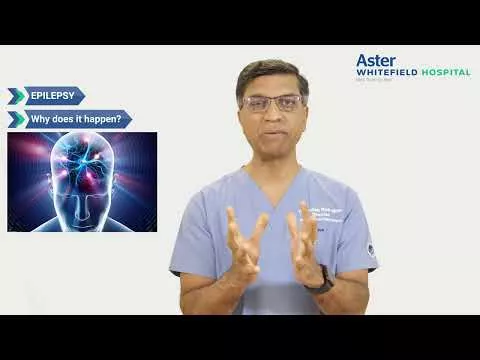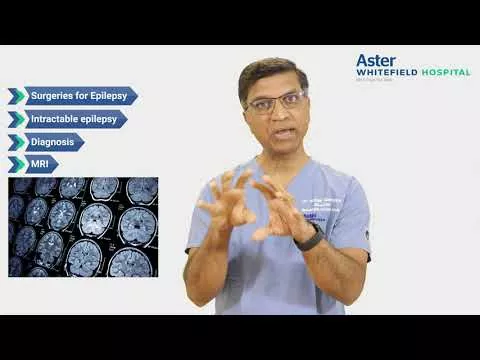Aster Epilepsy centre is equipped with a full-fledged facility with dedicated Video EEG machines for long-term epilepsy monitoring and pre-surgical monitoring of medically intractable epilepsy. In addition, outpatient EEG monitoring, portable EEG monitoring, and paediatric neurology/paediatric epilepsy programme are also available. The Epilepsy surgery programme is complemented by capabilities for depth monitoring, functional imaging with PET-CT, and functional MRI. There will also be a full-fledged sleep lab for the investigation and management of various sleep disorders.
Our Doctors
We have some of the best specialists from around the world, they bring years of experience and offer evidence-based treatment to ensure the best care for you.
Advanced Technology & Facilities
Well equipped with the latest medical equipment, modern technology & infrastructure, Aster Hospital is one of the best hospitals in India.
An EEG records the electrical activity of your brain via electrodes affixed to your scalp. EEG results show changes in brain activity that may be useful in diagnosing brain conditions, especially epilepsy and other seizure disorders.
A video EEG records what is happening when you have a seizure or event and compare the picture to what the EEG records at the same time.
Invasive EEG recordings are those recordings that are made with electrodes that have been surgically implanted on the surface or within the depth of the brain.
This is a procedure used intraoperatively to confirm the location and extent of epileptic tissue by recording electrical activity directly from the surface of the cerebral cortex.
MRI protocol for epilepsy is a group of MRI sequences put together to improve sensitivity and specificity in identifying possible structural abnormalities that underlie seizure disorders.
Positron emission tomography (PET) scans detect early signs of cancer, heart disease and brain disorders. An injectable radioactive tracer detects diseased cells. A combination PET-CT scan produces 3D images for a more accurate diagnosis.
A single-photon emission computerized tomography (SPECT) scan lets your doctor analyze the function of some of your internal organs. A SPECT scan is a type of nuclear imaging test, which means it uses a radioactive substance and a special camera to create 3-D pictures.
FAQs
Want to find out more about the treatment? The answer to your questions can be found below.
What are different types of epilepsy surgeries?
Epilepsy surgeries are of two types. In patients where we find a small, focal brain area responsible for epilepsy, we go for resection of that area. These surgeries are called curative surgeries where once that area is removed; patient will be mostly free of epilepsy. However, there is a group of patients in which a large area is responsible, or we could not define a small area or removing complete area is not feasible; surgeries are meant to just reduce seizure frequency and improve quality of life. These surgeries are called palliative surgeries.
What are complications with epilepsy surgery?
Epilepsy surgery is a carefully planned procedure, carried out under optimal circumstances to remove the region of brain causing the seizures, and to spare parts of the brain necessary for everyday functions.
Complications are very infrequent in epilepsy surgery, major complications like motor deficits, language deficits, vegetative states and disabilities are seen in 3-5% of cases. Other treatable complications like infections, prolonged hospitalizations, transient deficits, speech problems, mood problems, visual field deficits are common and do not alter the normal daily life. Overall, epilepsy surgery is safe surgery, and it improves quality of life of many patients and their care takers significantly.
What is Epileptology and what is the role of epileptologist?
Epileptology is a subspecialty of Neurology, focussing on evaluation and management of difficult to treat or complex epilepsy cases where seizures were not controlled despite starting anti-epileptic medications prescribed by a physician, paediatrician, or Neurologist.
Epileptologist is trained in detailed evaluation and management of complex paediatric as well as adult epilepsy cases and plays the key role in precisely finding out whether there is an epileptogenic focus in the brain which can be surgically removed to permanently cure epilepsy.
What are the investigations required for a patient with drug-resistant epilepsy?
Basic tests include Video EEG, 3 Tesla MRI epilepsy protocol and Neuropsychological assessment. Additional tests needed may be PET scan, SPECT scan, functional MRI, WADA.
What are EEG and video EEG and their necessity?
Video EEG is nothing but a simultaneous recording of EEG along with a video camera focused on you all the time. You will be admitted, and EEG leads will be connected to you. You will be under the camera for 24 hours while your EEG on. When you have a seizure, it will record the exact movements you do during your seizure activity and simultaneous EEG recordings. This will provide us with the exact idea of the area of your brain accountable for producing these seizures. Generally, 3-10 episodes of seizure will be recorded and so patients usually stay for 5-7 days in the hospital. We generally stop your drugs so that more seizures can be obtained in a short time. It is secure as you are having seizures in a controlled environment of the hospital, supported with doctors and nurses all the time.
What are the chances of improvement after epilepsy surgery?
Chances of seizure control depend on many variables and varies between 50-90%. If MRI shows some lesion which could be completely removed, then 9 out of 10 people can achieve seizure freedom and almost 6 out of 10 patients can be off medicine. However, outcome is in the magnitude of 50% with palliative surgeries. Outcome typically depends on the responsible pathology.
What can I do to manage my epilepsy?
Self-management is what one should do to take care of self. You can learn how to manage seizures and keep an active and full life. Begin with these tips:
- Take your medicine.
- Discuss with your doctor or nurse when you have questions.
- Recognize seizure triggers (such as flashing or bright lights).
- Keep a record of your seizures.
- Get enough sleep.
- Lower stress.
What is the incidence of epilepsy and drug-resistant epilepsy?
There are 70 million persons with epilepsy (PWE) worldwide, nearly 12 million PWE are expected to reside in India, which contributes to nearly one-sixth of the global burden. One million Indians have medically refractory seizures. An approximate 5 -6 lakh people are candidates for epilepsy surgery in India.
What is an Epilepsy Monitoring Unit (EMU?)
It is a specialized unit in the hospital for constant monitoring of brain activity using EEG and Video, where a patient is admitted for 3-5 days. This provides your doctor with a better understanding of your seizures by seeing how your brain functions and what you are physically doing during the event.
How do I prepare for the EMU Admission
To prepare for an EMU Admission:
• Wash your hair the night before or the day of the test, but do not apply any conditioners, hair creams, sprays or styling gels to your hairs. Hair products use should be avoided as it can make tougher for the sticky patches that are used to hold the electrodes to adhere to your scalp. If you have weaves or braids, need to be removed before a test is completed.
• Wear loose-fitting clothes
• Follow your physician’s instructions regarding your medication.
• Arrive at the hospital on scheduled time, delays can occur if you are late.
• You may bring electronics like a laptop to use during your stay.
• Visitors are allowed during your EMU admission. A family member or loved one who is familiar with the seizure is asked to stay along with the patient at the hospital.
Blogs
The source of trustworthy health and medical information. Through this section, we provide research-based health information, and all that is happening in Aster Hospital.

